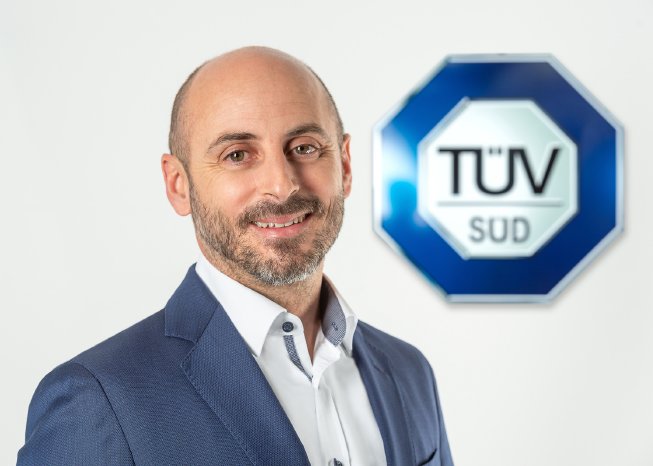Germany aims to cover 80 per cent of its energy from renewable sources by 2030. Leveraging the synergies between wind turbine generators and photovoltaic systems can form the foundation for a continuous power supply and may further accelerate the expansion of energy from renewable sources. “Wind energy and photovoltaic systems have different generation profiles, which generally complement each other excellently”, says Enrique Martinez de Ubago López, Head of Department Wind Energy at TÜV SÜD Industrie Service GmbH. “In addition, these hybrid systems only need one grid connection point. This facilitates their integration into the existing grid and reduces connection costs.”
However, the combination of various power sources (known as the power generation mix) is causing both the systems themselves and the system control to increase in complexity. “We have comprehensive expertise and experience across all areas of renewable energies”, emphasizes Martinez. “We can thus support planners, building owners and operators in even the most complex projects, such as the realisation of new hybrid systems or the expansion of existing renewable energy assets.”
Wind energy – from planning to lifetime extension
TÜV SÜD accompanies the expansion of energy from renewable sources, providing services for onshore and offshore wind energy and photovoltaics systems. These services include support with planning, construction or installation and with operation, but also with investment decisions in the form of risk assessment including Technical Due Diligence, occupational health and safety solutions, quality control during construction and installation, and periodic tests and inspections.
The TIC company’s experts issue certificates for wind turbine generators and offshore wind farms, wind reports, analyses of wind potential and site suitability and structural analyses, which lay the foundations for the planning and realisation of new wind farm projects. In addition, their assessment and inspection services in wind-turbine life extension provide a reliable basis for the decision-making involved in decommissioning, repowering or extending the lifetime of a turbine after the end of its design life.
The range of services addressing compliance-focused installation and safe operation of PV systems covers inspection in the design and construction phases, testing prior to placing into service, periodic inspections and support with the preparation of hazard assessments and safety concepts. The experts further carry out electroluminescence (EL) measurement , thermographic surveys and visual testing (VT) using unmanned aerial vehicles (or drones) to ensure the safe and efficient operation of these systems.
ISO 27001: the key to NIS-2 conformity
Safe plant operation also includes protection against cyber-attacks. The EU NIS-2 directive, which is currently being transposed into national law, requires operators of critical infrastructure such as wind farms and photovoltaic systems above specified thresholds to demonstrate that they meet minimum standards for risk management and cyber security measures. A TÜV SÜD-certified ISMS in accordance with ISO/IEC 27001 can be a key tool for achieving NIS-2 conformity. It enables organisations to improve both their information security and cyber security in a systematic and well-structured manner and to align them with specific requirements for wind or solar farms.
Note: On 25 September 2024, TÜV SÜD invites all customers to chill out after a day at the trade fair at the TÜV SÜD Oktoberfest at Stand A1.311 in Hall A1.


